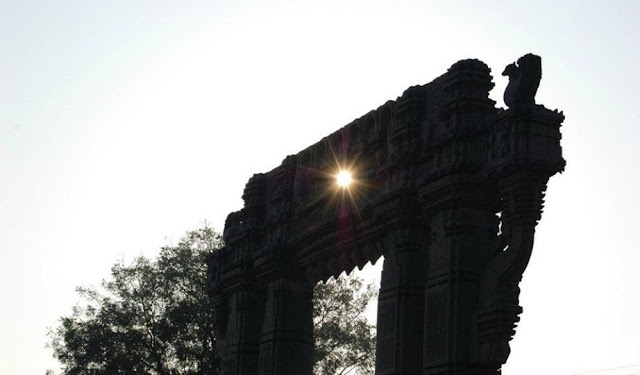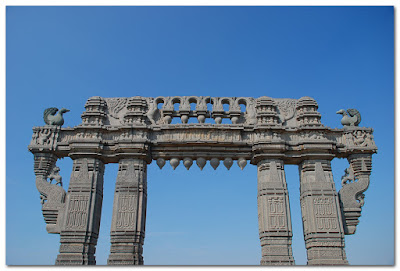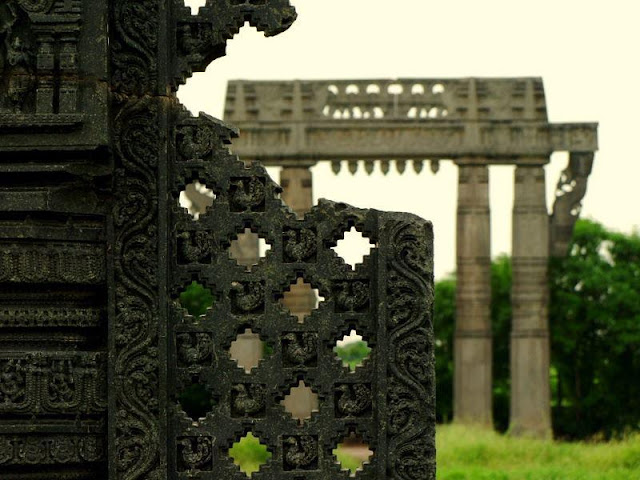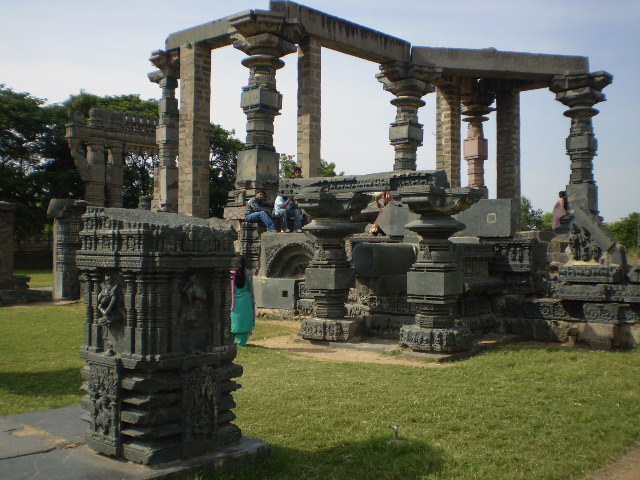Warangal Tourist Places
The Warangal Tourist Places Warangal, also called Ekasila Nagaram or Orugallu in earlier times is the headquarters of Warangal district in Telangana.
Warangal is at a distance of 145 km to the northeast of Hyderabad.
Warangala History: Warangal was the capital of a Shaivaite kingdom that was ruled by the Kakatiya dynasty from 12th to the 14th centuries. Its old name was Orugallu where Oru means one and Kallu means stone. The entire city was reportedly carved in a single rock, hence the name Orukallu that means one rock.
Warangal is well connected by rail from Hyderabad, New Delhi, Vijayawada, Visakhapatnam and Chennai. The city represents a cluster of three towns such as Warangal, Kazipet and Hanamkonda. The city is famous for many attractions.
Thousand Pillar Temple
Among the most famous monuments of Telangana, the Thousand Pillar Temple in Hanamkonda, was built by the Kakatiya King Rudra Deva in 1163 AD in Chalukyan style of temple architecture. The temple is dedicated to Lord Shiva, Lord Vishnu and Surya boasts of perforated stone screens, meticulously designed pillars, richly carved icons, and rock cut elephants representing the brilliance of Kakatiya architecture.
Bhadrakali Temple
Located near the Thousand Pillar Temple, here is the famous temple of Bhadrakali, well known for its image of Goddess Kali in a sitting posture.
Warangal Fort
Built during the reign of Kakatiyas in the 13th Century, this impregnable fort is a combination of geometrical intricacies and beautiful arches. The fort consists of 45 towers and pillars, which are spread over a radius of 19 km. The iconic ‘Ekasshila’, which is a beautifully carved gateway in the fort now finds place in the official symbol of Telangana state.
Khush Mahal
The symbol of a glorious past is the Khush Mahal, was a masterpiece built by Shitabh Khan and is located near the Warangal Fort.
Ramappa Temple
The Ramalingeswara temple, which is popularly called the Ramappa temple, is situated in Palampet village, 70 km from Warangal city. It boasts of intricate sculptures and richly carved pillars along with chiselled walls and ceiling.
Ramappa Lake
The Kakatiya rulers are known for their traditions of constructing a tank adjacent to any temple. The Ramappa Lake was also excavated near the temple, which beholds a great scenic beauty, with the serene surroundings, rendering a mystical air to this temple.
Pakhal Lake
A trip to Warangal is considered incomplete without a nice sojourn at the pleasant Pakhal Lake, which is located 50 km from Warangal city. It is a large manmade lake abutting forested hills. It was excavated during Ganapati Deva’s reign.
Kolanupaka
Located close to Warangal-Hyderabad highway, Kolanupaka represents a fusion of history and religion. It was believed to be the 11th century capital of the Kalyani Chulukyas and the birthplace of a great Veera Shaiva called Saint Renukacharya,. It is a famous pilgrim centre for Jains.
Ethrunagaram
Located 80 km from Warangal city, the Eturunagaram Sanctuary, on banks of River Godavari, is a dense forest, which is home to Spotted Deer, Neelgai, Blackbuck, Sloth Bear, Panther and Tiger. The best season to visit Eturunagaram Sanctuary is between October and May.
Mallikarjuna Swamy Temple
Sri Mallikarjuna Swamy temple is one of the famous temples in Telangana region. The Sri Mallikarjuna Swamy temple is an ancient temple with five hundred years of great history and is dedicated to Lord Mallikarjuna Swamy. The temple is located in a cave and situated in Kommeraveli village of Cherial Mandal.
Sammakka Saralamma Temple
The Sammakka Saralamma temple in Warangal was built during the 12th century. This temple has no mythological background relating to the construction of the temple; instead, it is believed to bebuilt in the memory of two tribal women. The main deity(s) of the Sammakka Saralamma temple are two brave women who stood up for their community and its betterment. They became Martyrs in the battle.
The recent attractions include Musical Garden, Rock Garden, Regional Science Centre, Van Vigyan Kendra and Laknavaram Lake.





No comments:
Post a Comment